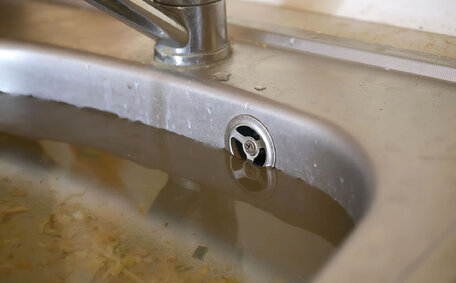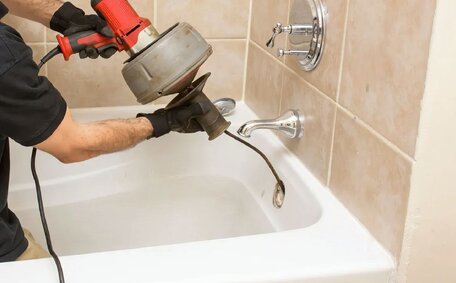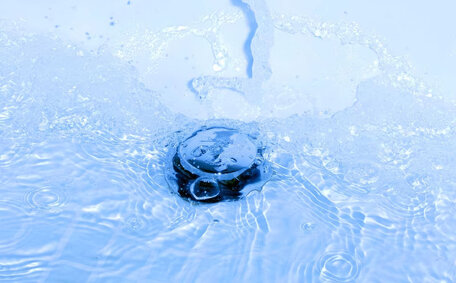Introduction to Latest Hot Water Systems
When it comes to hot water systems, technology has come a long way. The days of relying solely on inefficient storage tank water heaters are gone. There are now a variety of innovative and efficient hot water system options to choose from.
Some of the latest advancements in hot water system technology include tankless water heaters, geothermal and air-source heat pump water heaters, under-sink kitchen water heaters, and heat pump hot water systems. These new technologies offer a range of benefits compared to traditional storage tank systems.
Tankless water heaters, also known as instantaneous or on-demand water heaters, heat water as it flows through the system. This means you have a continuous, unlimited supply of hot water on tap. Tankless systems are extremely energy efficient as you only heat the water you need.
Heat pump water heaters use electricity to move heat, rather than generate it directly. This makes them two to three times more efficient than conventional electric resistance water heaters. Geothermal and air-source heat pumps extract heat from the ground or outside air respectively to heat the water.
Compact under-sink water heaters can provide hot water just to the kitchen tap without taking up much space. Whole home heat pump hot water systems combine the efficiency of heat pump technology with the convenience of central water heating.
Upgrading to one of these modern hot water system options can lead to improved energy efficiency, cost savings on energy bills, and reduced environmental impact compared to older storage tank-style systems. They are the future of hot water heating.
Tankless Water Heaters
Tankless water heaters, also known as on-demand or instantaneous water heaters, have become increasingly popular in recent years. Unlike traditional storage tank water heaters, tankless systems do not store heated water. Instead, they use heating elements to instantly heat water as it flows through the unit, delivering a constant supply of hot water on demand.
Tankless water heaters come in both electric and gas models. Electric tankless heaters use heating elements powered by electricity to heat the water. Gas tankless heaters use natural gas or propane burners for heating.
Both can provide significant energy savings compared to conventional water heaters, as you only heat water when needed rather than maintaining a whole tank of hot water.
Benefits of tankless water heaters include:
- Continuous hot water - Endless supply as the system heats water on demand
- Energy efficiency - Only heat water when required, saving energy
- Space saving - Compact, wall mounted designs
- Lower operating costs - Use less energy than storage tank heaters
Tankless water heaters work well in most homes but perform optimally in small to mid-sized households with moderate hot water usage. They may need multiple units installed for larger homes. Professional installation is recommended.
Overall, tankless water heaters represent an efficient and innovative option for hot water heating in modern homes.
How Tankless Water Heaters Work
Tankless water heaters provide hot water on demand by instantly heating water as it flows through the system. This differs from conventional storage tank water heaters which constantly heat and reheat water stored in a tank.
The main components of a tankless water heater are:
- Heat exchanger - Cold inlet water passes through a copper heat exchanger. Gas burners or electric elements heat the heat exchanger to rapidly raise the water temperature.
- Gas burner or heating elements - Gas tankless heaters use natural gas or propane burners. Electric models use electric heating elements. These provide the energy to heat the exchanger.
- Flow sensor - Detects when water is flowing and signals the burner or heating element to turn on and start heating.
- Thermostat and controller - Monitors water temperature and adjusts the heating system to maintain the desired output temperature.
When hot water is needed, the cold inlet water passes through the heat exchanger and is instantly heated to the set temperature before flowing out of the unit.
The flow sensor detects the water flow and tells the burner or heating element to turn on. The thermostat and controller modulate the heat to maintain the correct hot water temperature.
The major pros of tankless water heaters include:
- On demand hot water - Get continuous hot water and never run out
- Energy efficiency - Only heat water when needed, saving energy
- Compact size - Wall mounted, small footprint
- Longevity - Heat exchanger and other components last 20+ years
Tankless water heaters are very energy efficient as they avoid the standby heat losses associated with storage tank heaters. Their compact size also gives installation flexibility. The long lifespan and reliability of tankless systems make them a smart, low maintenance option for energy-efficient water heating.
Benefits of Tankless Water Heaters
Tankless water heaters offer a range of benefits that make them an attractive option for many homeowners. Some of the key advantages of tankless systems include:
Energy Efficiency
Tankless heaters are extremely energy efficient. Because they only heat water on demand, they avoid the standby heat losses associated with storage tank water heaters. This can lead to energy savings of up to 50% or more compared to traditional water heaters.
Cost Savings
The improved efficiency of tankless systems translates into lower energy bills for homeowners. You only pay to heat water when you need it. The US Department of Energy estimates a savings of $100 or more per year on water heating costs with tankless units.
Continuous Hot Water
Tankless heaters provide a constant supply of hot water as needed. You’ll never run out of hot water part way through a shower again. This unlimited hot water capacity makes tankless units ideal for larger homes with high demand.
Compact Size
Tankless water heaters are much smaller than conventional tank heaters. Their space-saving wall mounted design gives flexibility for installation indoors or out. Great for smaller homes where space is limited.
Longer Lifespan
The average tankless water heater lasts more than 20 years thanks to durable components like the copper heat exchanger. Avoid expensive replacements with the long lifespan of tankless systems.
With the energy savings, unlimited hot water, longevity, and flexibility of tankless water heaters, it’s easy to see why they are rapidly gaining popularity in modern homes.
Considerations for Tankless Water Heaters
While tankless water heaters offer many benefits, there are some important factors to weigh up before installing one in your home:
Upfront CostTankless heaters have a higher upfront cost than conventional storage tank models. Expect to pay $1000 or more for the unit and professional installation. However, the energy savings can make up for this over time.
Gas vs ElectricGas tankless heaters tend to be more cost effective but require gas lines and proper exhaust venting. Electric models can be easier to install but more expensive to operate. Consider which fuel type makes the most sense.
Climate ConsiderationsTankless heaters work better in warmer climates. Colder regions may need an indoor model to avoid freezing. Proper maintenance is also critical in areas with hard water.
Home Size and UsageCheck the hot water demand for your household. Tankless heaters work well for 1-2 bathrooms with moderate usage. Larger homes may need multiple units installed.
Professional Installationp>p>p>






